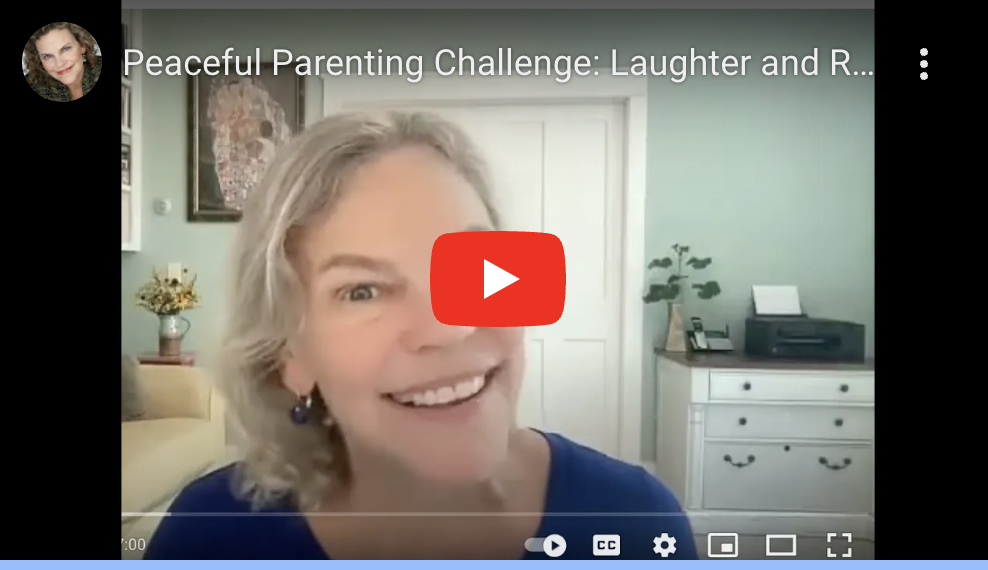
Day 1: The Neurobiology of Responsiveness and Empathy
Today's Peaceful Parenting Challenge is to experiment with empathy to settle your child's nervous system and help them stay more regulated.
Did you know that parental responsiveness and empathy actually change your child’s brain and nervous system, so they become more resilient and able to self regulate?
In today's video, you'll learn how this works, as well as specific tips to cultivate your responsiveness and create safety with your empathy -- even when your child is dysregulated.
Want to download just the audio? Click here.
For the transcript, click here.
Day 2: The Neurobiology of Laughter and Roughhousing
Today's Peaceful Parenting Challenge is to laugh with your child for ten minutes every day. You can even laugh with all your children together. Does that seem like a simple thing? It is! But laughter is a neurobiological powerhouse that can totally turn your family's whole day around! In today's video, you'll learn why laughing together is one of the fastest ways to heal minor relationship stress, help people drop grudges, and bring siblings into sync -- and why.
Want to download just the audio? Click here.
For the transcript, click here.
Day 3: The Neurobiology of Setting Limits
Today's Peaceful Parenting Challenge is about the neurobiology of setting limits.
As a parent, you’re responsible for guiding your child’s behavior, which means that you have to set limits all day, every day. But did you know that how you set limits has either a positive or a negative impact on your child’s nervous system? And how you set limits can either erode your relationship with your child – or strengthen it! Here's how it works.
Want to download just the audio? Click here.
For the transcript, click here.
Day 4: The Neurobiology of Self-Compassion
Today's Peaceful Parenting Challenge is about the neurobiology of self-compassion.
Being compassionate to yourself isn't just some silly, artificial thing about being nice to ourselves or letting ourselves off the hook. It's about reparenting ourselves by showing up as the supportive inner parent we all need. Self compassion supports us to be our best selves by nurturing our well-being, our resilience, and our ability to self-regulate – all of which creates a healing, nurturing environment for our children. Let's talk about the science behind it.
Want to download just the audio? Click here.
For the transcript, click here.
***
Want more videos about the Neurobiology of Peaceful Parenting?
Click here for our "Polyvagal-Informed Parenting" Challenge!





